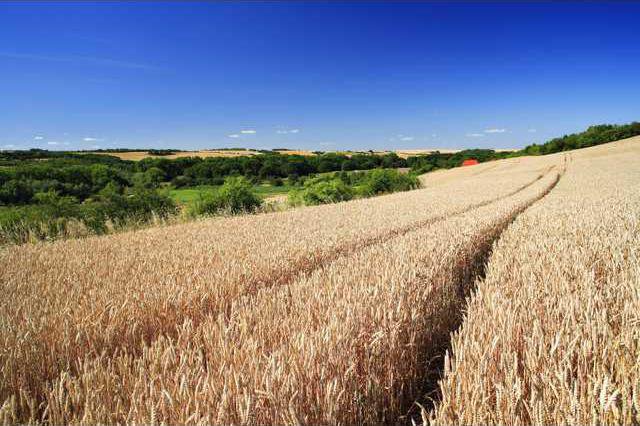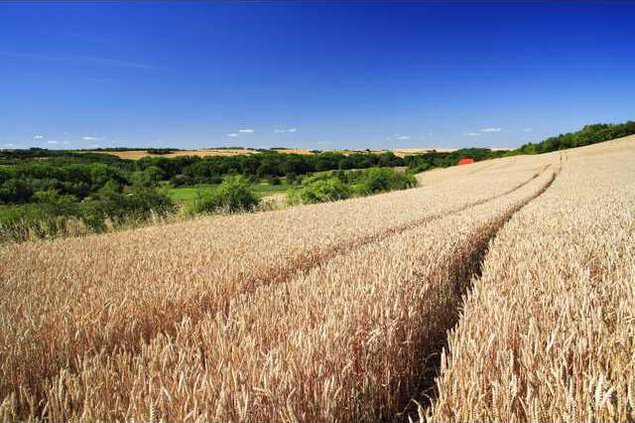Concerns about overpopulation have been a mainstay in poverty eradication discussions for decades. But according to the Brookings Institution, the problem isn't only overhyped, it's also missing the bigger issue.
"Overpopulation is an appealing emotional concept for many. With refugees, poverty, malnutrition, and hunger broadcast onto televisions around the world every day, emotional pictures are more convincing than facts," Brookings' Heinz-Wilhelm Strubenhoff wrote.
The problem is, according to Strubenhoff, the data says otherwise. He cites statics that show world population is increasing by just under 1 percent annually "with a tendency to fall to zero by (the year) 2100," meaning that there will likely be some natural population stagnation before the world hits the typically considered "critical mass" number of 10 billion or so.
The problem actually seems to be that we're overproducing resources and failing to distribute them properly, not that we're on the fast track to running out. Strubenhoff splits the issue into two very basic, and very familiar, categories: Supply and demand.
To argue the "supply" side of things, Strubenhoff looks at the output of cereal farms in the Netherlands, Ukraine and Nigeria. In short, they produce a lot.
Strubenhoff also looks to data from the EU that shows the scale of food waste in those countries.
So really, the feared devastations of overpopulation are more likely to be avoided by reducing waste, not lowering fertility rates to curb population growth.
In 2013, the Food and Agriculture Organization of the United Nations also raised a red flag on the impact of waste on the world economy.
"All of us farmers and fishers; food processors and supermarkets; local and national governments; individual consumers must make changes at every link of the human food chain to prevent food wastage from happening in the first place, and re-use or recycle it when we can't," FAO Director-General Jos Graziano da Silva said in a statement at the time.
"We simply cannot allow one-third of all the food we produce to go to waste or be lost because of inappropriate practices, when 870 million people go hungry every day."
"Overpopulation is an appealing emotional concept for many. With refugees, poverty, malnutrition, and hunger broadcast onto televisions around the world every day, emotional pictures are more convincing than facts," Brookings' Heinz-Wilhelm Strubenhoff wrote.
The problem is, according to Strubenhoff, the data says otherwise. He cites statics that show world population is increasing by just under 1 percent annually "with a tendency to fall to zero by (the year) 2100," meaning that there will likely be some natural population stagnation before the world hits the typically considered "critical mass" number of 10 billion or so.
The problem actually seems to be that we're overproducing resources and failing to distribute them properly, not that we're on the fast track to running out. Strubenhoff splits the issue into two very basic, and very familiar, categories: Supply and demand.
To argue the "supply" side of things, Strubenhoff looks at the output of cereal farms in the Netherlands, Ukraine and Nigeria. In short, they produce a lot.
Strubenhoff also looks to data from the EU that shows the scale of food waste in those countries.
So really, the feared devastations of overpopulation are more likely to be avoided by reducing waste, not lowering fertility rates to curb population growth.
In 2013, the Food and Agriculture Organization of the United Nations also raised a red flag on the impact of waste on the world economy.
"All of us farmers and fishers; food processors and supermarkets; local and national governments; individual consumers must make changes at every link of the human food chain to prevent food wastage from happening in the first place, and re-use or recycle it when we can't," FAO Director-General Jos Graziano da Silva said in a statement at the time.
"We simply cannot allow one-third of all the food we produce to go to waste or be lost because of inappropriate practices, when 870 million people go hungry every day."





